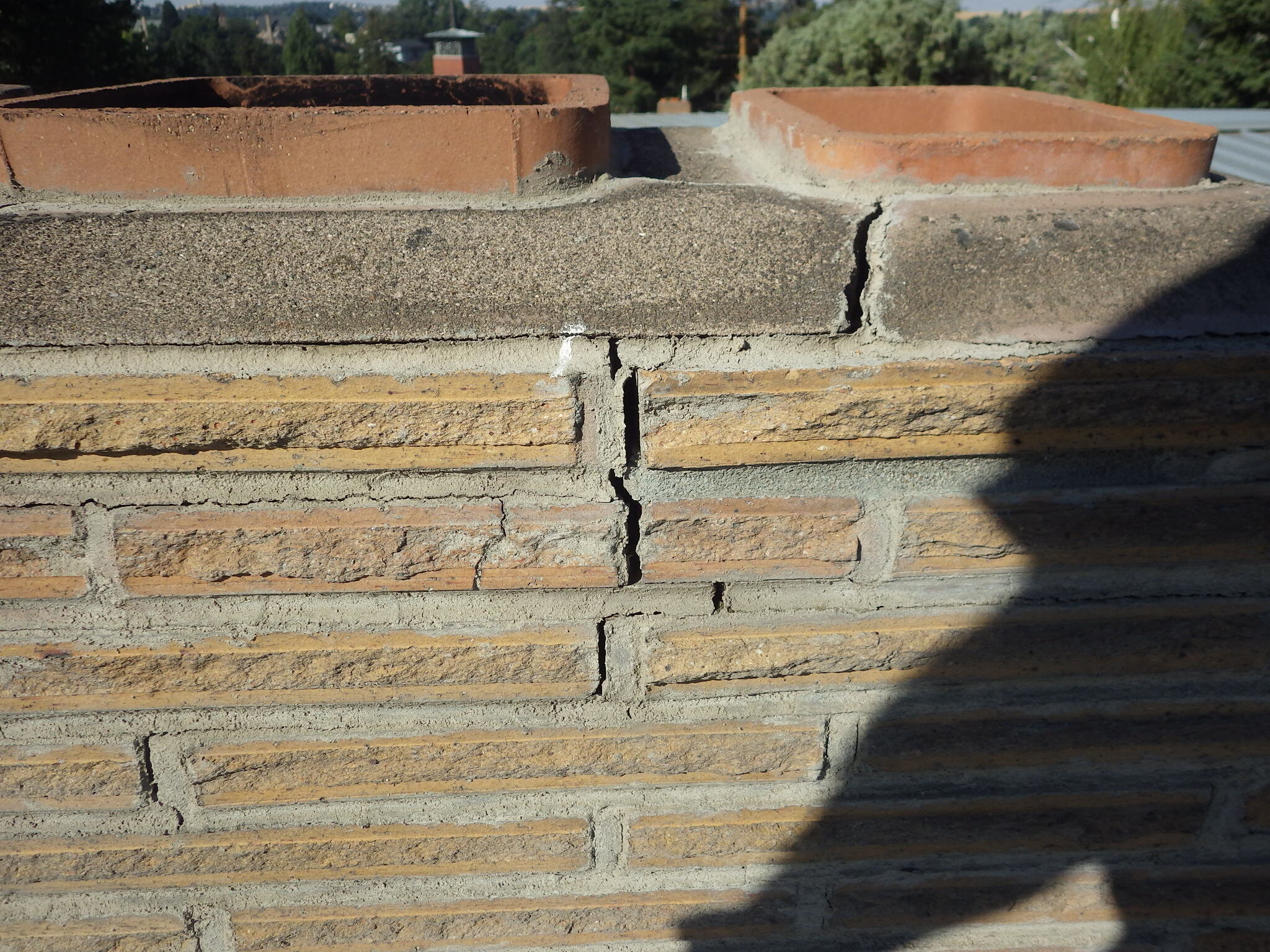
Chimney Fires Are a Thing
When you buy a home, does the inspector inspect the chimney?
The answer is . . . kind of.
By standard, the inspector is supposed to inspect the visible elements of the chimney. That would include the exterior structure, whether it is masonry or metal chimney pipe, and the interior hearth, extension, and firebox. They should also be checking for proper operation of the damper assembly.
Most inspectors will provide a cursory look at these and then include language in the report to let themselves off the hook for any liability. Phrases such as “I recommend having the chimney professionally cleaned” or “recommend further evaluation by a qualified specialist” are common in inspection reports.
And, that would be fine, if the inspector actually inspected the chimney. All too often, what I see when I go out to sweep a chimney after someone has purchased it is thousands of dollars of repairs to the chimney structure or, worse, a fundamentally unsafe situation.
Chimney Problems
The problems I see on the exterior range from several deteriorated crowns and mortar work to bad flashing. Chimneys are fully exposed to weather which means that Mother Nature beats on them constantly. Add to that chimneys are not consistently maintained and you have a recipe for a thousand dollar repair bill to secure loose brick or stop water intrusion.
This kind of damage gets missed in reports all the time.
But that’s not the worst of it . . .
Chimney Fires
I bring this up because I am working on my 11th chimney fire investigation this year. Several of them are on homes that just recently sold. In addition to that, I’ve done a dozen NFPA Level II inspections after the buyers take possession of the home that have resulted in my asking the owners to NOT use the fireplace or wood stove due to the damage I observed in the system.
The single biggest cause of chimney fires that I’ve investigated so far is a poorly installed wood insert. These ‘slammers’ as the sweep trade calls them lack a connector pipe into the flue which leads to an enormous amount of creosote build up in the smoke chamber and at the top of the firebox.
Can your inspector identify this? Sure. But they don’t. they treat everything past the door as a ‘black box’ outside the scope of a home inspection. Which would be fine if they would recommend a chimney inspection. They don’t because that would upset the agents, and they know where their referrals come from.
So, my advice. Get your chimney inspected - before you buy the house. I know, it is an extra expense when everything is costing you money. But, it might save you thousands of dollars . . . or a life-threatening fire.
The High Cost of a Cheap Inspection
I have to admit that this year has been interesting - and FRUSTRATING.
This is a year that has included my usual residential work with some neat people. I’ve also worked with some folks that were less than neat and forced me to change procedures, including one gentleman who stood on a rickety second story deck railing to see what I was doing on the roof. I took a picture and sent it to his agent with the message, “THIS is way inspectors have anxiety attacks!”
I also had a client go through the dresser of the property owner. I was mortified.
Throw in a couple of other incidents, and I had to make a policy change. While in the past, I always wanted the client to attend the whole inspection, now I encourage clients to visit with me at the end of the inspection. This actually means the inspection process takes longer, but I simply will not have a client get injured on one of my projects, and I’m not going to violate a homeowner’s privacy. To compensate, I now put a lot of video into my reports.
I also am working as an expert witness in a case for a law firm in Spokane. I won’t go into particulars, but the process has been fascinating and will lead to changes in my reporting (even more thorough!) and policies.
I’ve had multiple clients set inspections and then cancel them after they were told that the listing agent would not allow me to inspect the property. In one case, the client was an attorney. From a real estate agent perspective, this was just dumb as it opens them up to a suit. As an inspector, it is frustrating - especially in the case of a home where I had previously called out structural concerns. As the”deal-killer” inspector, I’ve gotten used to being blacklisted but nothing says I have to like it.
But Wait . . . . There’s More! Let’s Talk Commercial Inspections
The most frustrating part of the year happened on the commercial real estate side.
Last year (2018) was a banner year for commercial inspections and I did some outstanding work identifying issues ranging from deteriorated foundations on a historical building to sagging walls in a warehouse building, to the extreme difficulty of upgrading a boiler system in a 1950’s building.
Good stuff, great catches, and I saved my clients a lot of money. This is not the way to endear oneself to the local agents. At the heart of the ASTM E2108 Property Condition Assessment (the recognized commercial inspection standard) is the Opinion of Probable Costs. When identifying deficiencies, I also generate an estimate of the repair costs. As you might imagine, this estimating requires considerable time and expertise. Contacts in the construction world help a lot, too.
One that didn’t get away . . . A landmark Pullman Building and Restaurant
This year, I missed on multiple projects. The reason?
I was too expensive. In almost every case where this happens, I am discussing fees and proposals with the agents and not the principals. Not an ideal arrangement.
One project that I missed out on was the McConnell Building in downtown Moscow. It is a historic building constructed in 1890. I will be the first to admit that I’m a sucker for old homes and buildings. I’m also leery of them and approach them looking for surprises. Sometimes it’s wiring issues, sometimes it’s foundation concerns - the list goes on and on. The inspector needs to be highly competent and vigilant.
In the case of the McConnell Building, it was the plumbing and I suspect that it was not discovered in the inspection process. After testing, the management company discovered that there was lead in the drinking water. This is a very big deal - and very expensive to fix. It is also exactly the type of issue that the inspector should be looking for when performing the walk-through survey.
This was not the only surprise. The new owner, Andrew Crapuchettes , with whom I have not talked, hinted at additional difficulties. Per this article in the Moscow-Pullman Daily News, there were several other “significant deferred maintenance issues” that he now has to deal with.
Yes, this chimney needs more than a little help.
One I’m not sure the current owner probably doesn’t know about yet is something I learned at the fire department while marketing my new chimney inspection service. Apparently, a neighboring business didn’t want to have the McConnell residents climbing on the roof of his business, so he nailed the windows shut from the outside. I have no idea if that condition still exists or if it is legal, but it just adds to my conviction that a proper commercial inspection includes all aspects of due diligence, including gathering the building permit records, health department records, and fire safety inspection reports.
As an inspector, that bugs me. My job - any inspector’s job - is to get that information and protect my client. The purpose of the Opinion of Probable Cost section is to address exactly this issue and is a critical feature of the due diligence process.
I’ll never stop saying it - you need the best inspector you can afford. The guys that work on the cheap will likely deliver a product that reflects their attitude toward their profession.
Washington State License #215
Former SBCC Member, Former Chairman State Home Inspector Advisory Licensing Board.





